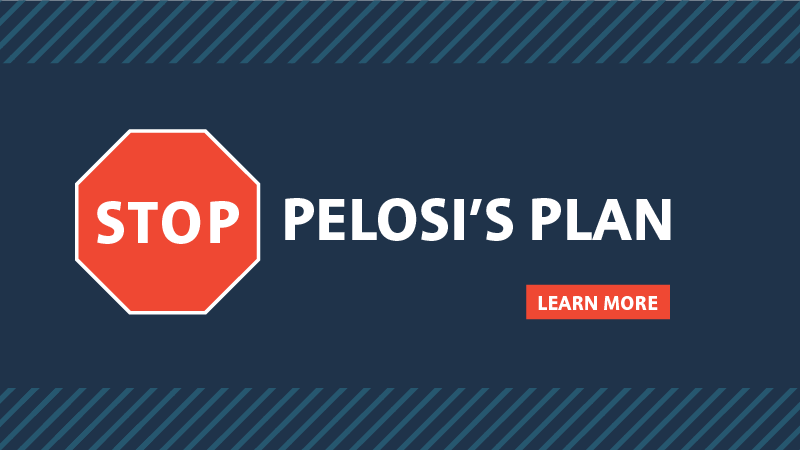Recently, House Speaker Nancy Pelosi unveiled a radical drug pricing plan, H.R. 3, that would be the wrong approach for patients, the U.S. health care system and the economy.
But what about biopharmaceutical innovation? In the last decade, the biopharmaceutical industry has brought hundreds of new treatments and cures to market, revolutionizing treatment for patients with a range of chronic and rare conditions. These include more than 100 first-in-class medicines, more than 130 new medicines to treat orphan conditions, and almost 100 new treatments for cancer.
New analysis finds the Pelosi plan would siphon more than $1 trillion from biopharmaceutical innovators over 10 years and puts the pipeline for future biopharmaceutical innovation at risk, particularly for treatments such as Alzheimer’s and ALS. Additionally, we know that the National Institutes of Health (NIH) is not equipped to fill in gaps in lost R&D. NIH focuses on “basic” research, with only a very small portion of their budget going to drug development.
An increasing number of stakeholders and experts have spoken out on how the impact of Pelosi’s plan on innovation could be severe. Here are some of their thoughts:
- “As it is written currently, the law will most likely curtail investment in personalized medicines, cutting edge cell therapies, gene therapies and many other treatments that improve the lives of Americans…when in our history have we seen price controls stimulate growth, creativity and improved products? This legislative proposal…sends a negative signal to those willing to invest in companies developing drugs with no generic equivalent and encourages them to invest in drugs for diseases where there are already treatments.” – American Enterprise Institute (AEI) Fellow Kirsten Axelsen
- “The real concern is the impact on innovation and the quality of therapies in the United States… Losing roughly 5 percent of innovative drugs is nothing to sneeze at, but I think this is the tip of the iceberg.” – American Action Forum (AAF) President Douglas Holtz-Eakin
- “We should not underestimate the impact this would have on patients. The pricing plan penalizes successful R&D in the treatment areas where there is still substantial need, such as oncology and neurological disorders.” – Duane Schulthess of Vital Transformations and Sue Peschin from the Alliance for Aging Research
- “I think the CBO estimate is clearly an underestimate on the effect on innovation.” – Director of Program on Healthcare at Kellogg School of Management, Northwestern University, Craig Garthwaite, Ph.D.
- “It’s also clear, however, that the impact of H.R. 3 on innovation will be substantially higher than reducing new treatments by just 8 to 15 over the next decade.” – American Action Forum (AAF) Director of Health Care Policy Chris Holt
Policymakers should pursue practical, bipartisan solutions that prioritize lowering out-of-pocket costs instead of blowing up the current system. For a deep dive on Pelosi’s plan, click here.
Learn more about Speaker Pelosi’s drug pricing plan here.
Take action and tell Congress to stop Speaker Pelosi’s plan here.



